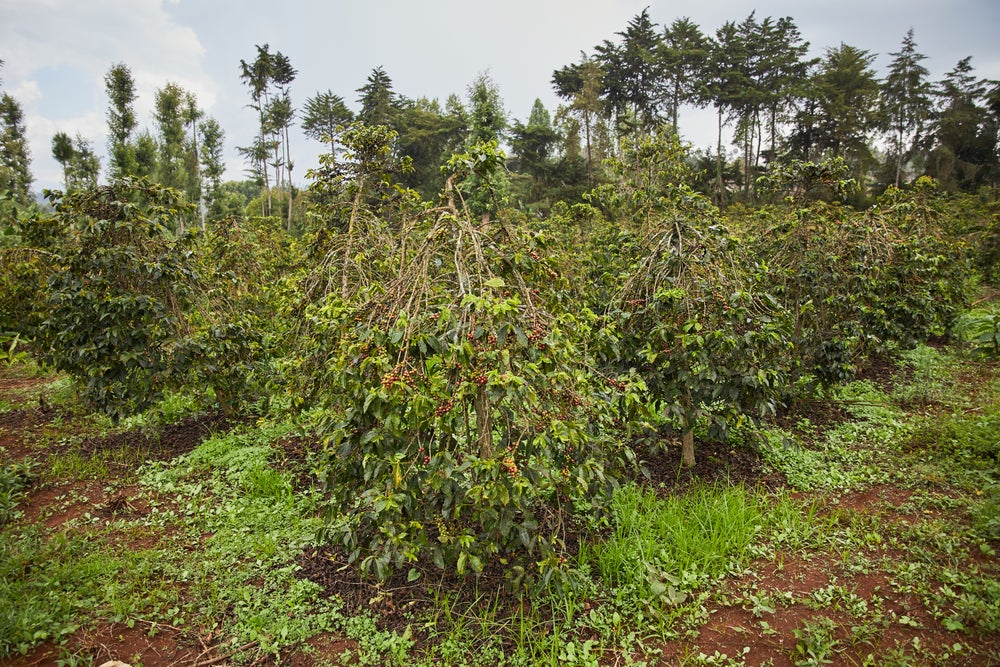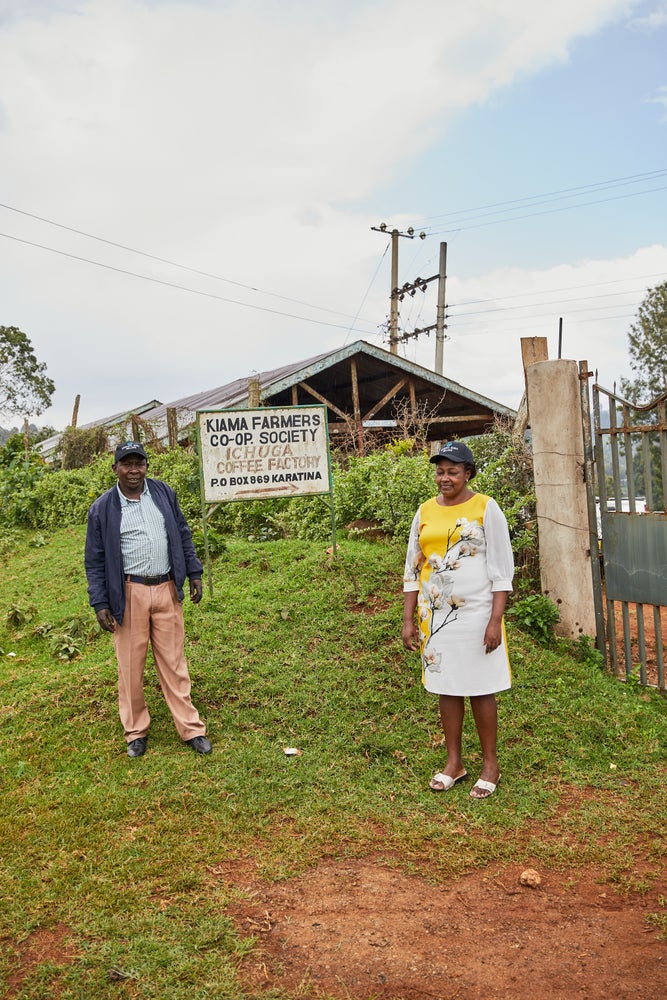About This Coffee
This fruit-forward FW coffee is juicy and clean with notes of currants, berries and citrus. Ichuga is one of 5 factories owned and operated by Kiama Farmer Cooperative Society (FCS). Located in Nyeri, near the town of Karatina, that station is located at 1,700 meters above sea level.
Kiama FCS was founded in 1996 by the 5 member cooperatives, which had previously belonged to 2 separate cooperative societies. The name “Kiama” came from a portmanteau of the two cooperatives they currently belong to, Kiawirigi and Magutu.
Charles Ngure, the elected chairperson of Kiama FCS says “coffee is life” to convey the importance of coffee to the communities Kiama FCS serves. Like many of the members, Charles grew up surrounded by coffee production and inherited his family farm.
Cultivation
Over time, more and more farmers have come to rely on coffee production as their main source of income, and Kiama FCS’s focus on improving coffee quality through better cultivation is essential to enabling sustainable livelihoods. With support from Kahawa Bora, members of Ichuga Factory and Kiama FCS receive training on Good Agricultural Practices (GAPs) and access to affordable inputs. Kahawa Bora has also helped members before Rainforest Alliance and CAFÉ Practices certified.
Farmers delivering to Ichuga cultivate primarily SL28 and SL34 in small coffee gardens that are, on average, smaller than 1 hectare. ‘SL’ varieties are cultivars originally released by Scott Agricultural Laboratories (SAL) in the 1930s and 1940s. They soon became the go-to trees for many growers in Kenya due to their deep root structure, which allows them to maximize scarce water resources and flourish even without irrigation. They are cultivated with a serious eye to sustainability and Good Agricultural Practices, with minimal environmental impact where possible. Ruiru 11 is a new variety known for its disease resistance and high yields. It has the added benefit of early maturity – cropping after only two years.
Prior to Kahawa Bora’s soil sampling program, farmers had little access to soil analysis methods. Fertilizer, when applied, would be formulated according to a generalized recipe rather than one uniquely suited to the farm’s exact needs. With better access to information through technology and agronomical assistance, farmers can apply the right fertilizer recipe at the right time, improving yields and cherry quality.
Kiama FCS purchases inputs in bulk to attain economies of scale. Members can then buy discounted inputs through the cooperative. Paired with soil analysis and better cultivation techniques, coffee yields are increasing and quality improving.
Nyeri’s red volcanic soil is rich in organic matter and nutrients, making it an excellent region for coffee production. Sucafina Kenya’s field team provides training to farmers and washing station employees. The station also receives prefinancing from Sucafina to support maintenance and operating costs.
Harvest & Post-Harvest
Farmers selectively handpick ripe cherry and deliver it to washing stations near them. Cherry is carefully sorted at intake where under- and over-ripes, along with any foreign matter, are removed.
Once sorted, ripe, red cherry is added straight to the hopper and pulped. Coffee is fermented and then washed in clean water to remove any remaining mucilage.
Wet parchment is sorted and any damaged beans that remain are removed. Then, parchment is moved to raised beds to finish drying. Here, it is turned regularly to ensure even drying and covered at the hottest part of the day and overnight to prevent cracking and/or condensation. Workers will also regularly inspect drying parchment and remove any damaged beans. Drying time is usually around two weeks, depending on the weather at the time.
Once dry, parchment is delivered to Kahawa Bora Millers. The mill has the capacity to mill smaller lots separately to help preserve quality and traceability.
About Nyeri County
Nyeri County is one Kenya's most famous growing regions.
The name Nyeri is derived from the Masaai word nyiro, meaning red, after the red volcanic soil in the area. The name was adapted by white settler farmers to Nyeri. Most farmers in the area today grow tea and coffee as cash crops. Coffee varieties in the region are usually a mix between SL 28, SL 34 (roughly 80%) Batian and Ruiri 11.
Coffee in Kenya
Though coffee growing had a relatively late start in Kenya, the industry has gained and maintained a impressive reputation. Since the start of production, Kenyan coffee has been recognized for its high-quality, meticulous preparation and exquisite flavors. Our in-country sister company, Sucafina Kenya, works with farmers across the country to ensure these exceptional coffees gain the accolades they deserve.
Today, more than 600,000 smallholders farming fewer than 5 acres compose 99% of the coffee farming population of Kenya. Their farms cover more than 75% of total coffee growing land and produce nearly 70% of the country’s coffee. These farmers are organized into hundreds of Farmer Cooperative Societies (FCS), all of which operate at least one factory. The remainder of annual production is grown and processed by small, medium and large land estates. Most of the larger estates have their own washing stations.
Most Kenyan coffees are fully washed and dried on raised beds. The country still upholds its reputation for high quality and attention to detail at its many washing stations. The best factories employ stringent sorting practices at cherry intake, and many of them have had the same management staff in place for years.

